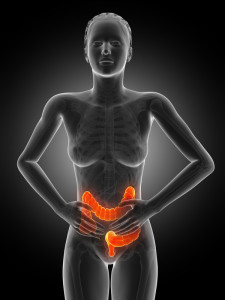IBS Foods – What to Avoid
You will find IBS foods tend to fall into two camps – those that make the condition worse and those which help to alleviate the symptoms experienced by sufferers.
 Ahead we will take a look at the foods which are considered non-inflammatory and safe to eat for IBS sufferers of which a bigger percentage tend to be women.
Ahead we will take a look at the foods which are considered non-inflammatory and safe to eat for IBS sufferers of which a bigger percentage tend to be women.
However, it is worth noting that everyone is individual and the triggers for an IBS attack vary from person to person so these seven tips are to be considered general guidelines for you to use for your own experimentation.
1. Fish is thought to be less inflammatory than meat and by selecting the oily fish (salmon, mackerel, herring) you provide your body with the essential fatty acids required for good health (for those who find fat in all forms is a trigger for their IBS, stick to white fish).
2. Fruit (excluding citrus fruit) is good in that it is a rich source of vitamins and minerals and naturally occurring soluble fibre. This is the fibre that is dissolved in water and remains soft and bulky in your gut, aiding normal bowel movements. Citrus fruits are thought to trigger IBS attacks in some sufferers so this may be something you want to eliminate from your diet completely to see if there is an improvement in your condition.
3. Vegetables all contain essential nutrients and are rich in soluble fibre. The only ones to perhaps avoid are those you know are not tolerated well by your body – and this is something that is different for everyone. For some, onions, capsicum and chilli can irritate the gut whereas others find cauliflower, brussel sprouts and cabbage to be gas forming. Try to eat vegetables at every meal but do not mix types – that way you can quickly spot which ones are likely to trigger an IBS attack.
4. Rice and cereals need to be tested and evaluated by you as an individual. Rice tends to be a very neutral food that is tolerated by just about everyone. This is useful if you have eliminated dairy from your diet as rice milk is a palatable substitute. Other cereals are not quite so reliable. A lot of IBS sufferers report wheat, or the gluten within wheat, as a trigger food so exploring alternatives is a good idea – chick pea flour or rice flour for instance. Working out which cereals work best for your body is going to be a process of trial and error but it is worth persevering as completely eliminating cereals from your diet can be very hard as well as limiting.
5. Skinless chicken is the next best protein source after fish; mainly because of the low fat content (fat is thought to be a trigger for some of the common IBS symptoms). It’s important to remember not to add extra fat to poultry (or fish) when cooking as that rather defeats the purpose of selecting low fat high protein sources.
6. Yoghurt and probiotic drinks are thought to be helpful in restoring the natural gut bacteria levels which can be damaged with IBS related diarrhoea and constipation. Fermented foods like homemade sauerkraut also offer a wide variety of bacteria that are beneficial and help protect against a big range of digestive issues including IBS.
7. Fennel or peppermint tea are both very soothing. They help to eliminate gas (wind) and are antispasmodics. Fennel seeds can be ground or toasted and added to all manner of recipes to aid digestion, mint leaves can be chopped and added to vegetables, meats and salads – again to help reduce IBS symptoms.
I know life can be difficult as an IBS sufferer and the last thing anyone wants is to have to make drastic dietary changes as well as cope with a distressing health condition.
So it’s important that a good diet improves your quality of life and not detract from it. For this reason it is a good idea to make small changes to your diet when managing your IBS and get used to those before making more.
Hopefully this list of IBS food tips will give you some ideas to get started with and help to bring you some relief.
Another great source of reliable information comes from a site I read regularly for over 60’s. You might like to read this one about how to naturally improve your IBS symptoms.
In closing, while doing my research for this article I also came across this Irritable Bowel Syndrome Diet Sheet which I thought a lot of people would be interested in.
Hope this helps you get some relief.
I think that I have a case of IBS so this information came in very handy for me. I eat a ton of fish, not necessarily because I’m obsessed with it, but mainly because I thought it was healthy. I’ll have to try to stop eating so much of it to see if that helps. Thanks for sharing this.
Thanks for your comments Kyler. Hopefully it is of some help for you. Cheers – John.